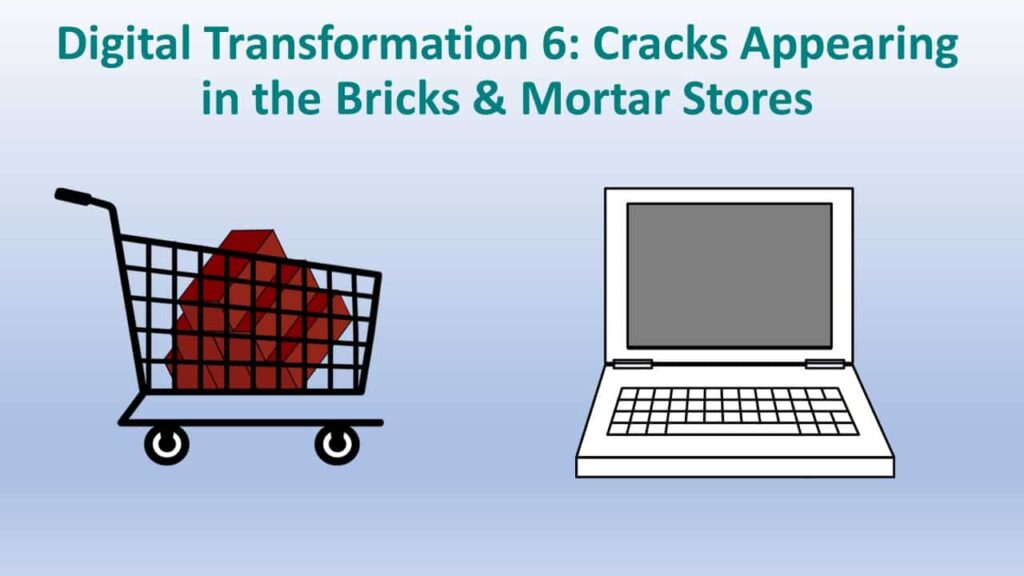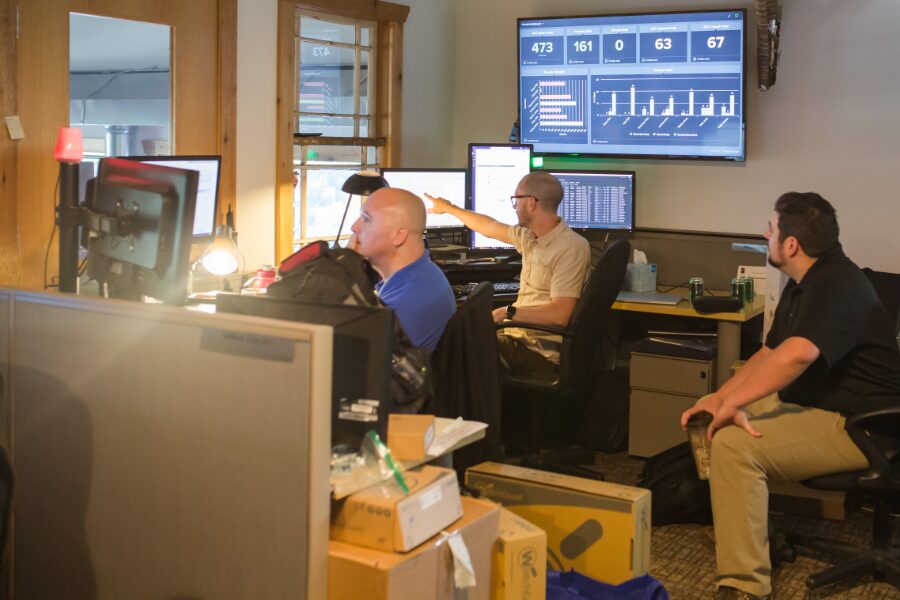Group 1 Blockbuster. Woolworths. Sears, Kodak.
Group 2: Uber. Netflix. AirBnB.
Can you figure out what these groups have in common?
The first includes traditional brick and mortar companies which are grappling with intense disruption and transformation of their old business models in a Web-based world.
The second includes the “born in the cloud” upstarts leading the digital transformation that has resulted – just since October — in nine U.S. chains filing for Chapter 11 bankruptcy protection and the layoffs of 90,000 retail workers. And experts say the bloodbath is just beginning.
“The disruption is just unfolding,” according to a recent NPR report from Mark Cohen, a former CEO of Sears Canada who now directs retail studies at Columbia Business School. “I think the number of store closings will continue at an accelerated pace right through this year into next year.”
Retailers have announced plans to close 3,100 stores so far in 2017 — more than all of last year combined. J.C. Penney said it would close an additional 138 stores this year, Sears and its Kmart brand intend to close 150 stores, and Macy’s will shut down 100 stores.
And national chains like Radio Shack and Gander Mountain are not the only ones. Locally we have lost long-established companies like Mallatt’s Pharmacy and Dunham Express which was once in six states with 200 employees. Welcome to the digital transformation.
Many believe the elusive “customer experience” is driving the change, aided by technology. Customers want products, but they want to build memories. They want to follow their new car being made piece by piece or to track their purchase as it makes its way across the country and to their front door.
That means harder work for brick and mortar stores to make digital connections to their customers. Likewise, some online retailers, like Bonobos, are opening showrooms, places where consumers can test their products and then order online. And, of course, those types of showrooms require a lot less space than a conventional store.
But the fight is not over. Conventional stores are competing with online and social media by trying to be a gathering place of choice. Malls, for example, are trying to add more restaurants and movie theaters to create places where people want to come to interact. Other stores have turned empty space into coffee shops, shared business space and even apartments.
“It’s not clear what we’re going to look like on the other side when this is all over,” Cohen said. “If it in fact is ever all over.”
About the Digital Transformation Series:
Over the next few months Applied Tech President and CEO Kurt Sippel will be exploring “Digital Transformation” in a series of articles with the hope to inform, educate, and discuss its many different facets. Digital transformation is the profound and accelerating transformation of business activities, processes, competencies and models to fully leverage the changes and opportunities of digital technologies and their impact across society in a strategic and prioritized way, with present and future shifts in mind. Kurt will explain how this effects your business, how to best prepare and how to leverage the technology to get the upper hand on your competition.
If you would like to be notified of the upcoming articles sign up below!
[formidable id=”23″]
About Kurt Sippel:
CEO Kurt Sippel began his technology career at age 18 when he began providing consultation services to various small businesses in Fond du Lac County. This was followed by eight years at the University of Wisconsin-Madison where he managed and taught research technology while pursuing a Master’s degree in urban and regional planning.
In 1999 Kurt left the university to start his own firm, Applied Tech Solutions Inc. to focus on the technology needs of small and medium sized businesses. Applied Tech is now the leading IT managed service provider in Dane County and has offices in Madison, Waukesha and Stevens Point.






